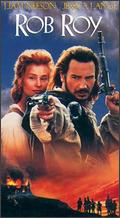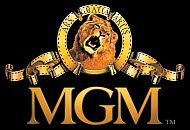Rob Roy
 for violence, sexuality and language.
for violence, sexuality and language.
Reviewed by: Brett Willis
STAFF WRITER
| Moral Rating: | Very Offensive |
| Moviemaking Quality: |
|
| Primary Audience: | Adults |
| Genre: | Biography History Romance Adventure |
| Length: | 2 hr. 19 min. |
| Year of Release: | 1995 |
| USA Release: |
April 14, 1995 (wide) |

| Featuring |
|---|
| Liam Neeson, Jessica Lange, John Hurt, Tim Roth, Eric Stoltz, Andrew Keir |
| Director |
| Michael Caton-Jones—“The Jackal” (1997), “This Boy's Life” (1993) |
| Producer |
| Distributor |
This is the third filming of this story, loosely based on a novel by Sir Walter Scott; there was a 1922 silent film and a 1953 Disney version. This latest take has some positive elements and high period-piece production values, but is extremely—what’s a polite word—“earthy”.
The setting is Scotland in 1713, a transition time when the old systems of order are breaking down. Robert Roy MacGregor (Liam Neeson) is a clan leader in the service of the Marquis of Montrose (John Hurt).
As the film opens, we see him recover some of Montrose’s stolen cattle and engage the thieves’ leader (who is an old friend) in deadly sword combat. In the past, Rob Roy had been a cattle thief himself (movies no longer give us squeaky-clean heroes), but he’s now trying to keep order in his troubled country. Later, he’ll be forced to turn against his master.
Perhaps the imposing figure that the scraggly-haired Neeson makes while brandishing a sword earned him his role in “Star Wars: Episode 1”.
Our first impression of the decadent upper class isn’t flattering, nor does it improve as the film progresses. Montrose, not an honest man himself, has two villainous servants: his accountant, Killearn (Brian Cox); and a visiting Englishman, Archibald Cunningham (Tim Roth). Cunningham’s mother has sent him to Montrose to get “straightened out” (not a good choice). It’s never explained why she picked Montrose; there’s a clue at the end of the film, but it’s inconclusive.
The “least bad” member of the upper class is Montrose’s rival, the Duke of Argyll (Andrew Keir). These rich men appear effeminate with their longhair wigs, frilled shirts, soft pastel colored coats, pale-face makeup and broken-wrist gestures. Of course, that’s just a cross-cultural illusion.
What isn’t culture-dependent is Cunningham’s behavior, which would be disgusting anywhere. He even jokes that he once raped a young boy whom he mistook for a girl. Cunningham seems pathetic, but not terribly dangerous—until a muscular swordsman insults him, and we find that he’s a cool head and an expert with a blade. Cunningham also turns out to be a liar, thief and murderer.
Movie fans, here’s a really hard question: do you suppose that Rob Roy and Cunningham might eventually cross swords?
Content warnings
There’s a lot of profanity. Some of it is hard to make out, due to the strong Scottish accents. Also, several sexual slang terms that either were obsolete or else never made it into American English are revived here; one of those terms was later used extensively in “Austin Powers 2”, even in its “official” title.
There are crude jokes about abortion, about sexual odors, about drinking urine to recycle the unused alcohol, about Calvinist church standards.
Although there’s no visible nudity, there are several simulated or implied sex acts (marital, nonmarital and rape).
Montrose sends his soldiers, led by Cunningham, on missions of brigandage (burning the Highlanders’ homes, killing people and their livestock, raping women). There are many killings—some graphic—with both firearms and blades; some are cold-blooded murders.
In all of this distress, no one is seen calling on God for help; instead, they rely on their own strength. It appears that, although the people have some knowledge of Christianity (otherwise, why would they tell church jokes?), what they have isn’t meaningful in their daily lives.
Positive content
The most noticeable element is Rob Roy’s sense of “honor.” He’d rather die than tell a lie or betray a trust. Also, he and his wife Mary (Jessica Lange), though they sometimes quarrel, are fiercely devoted to each other. The sets, costumes and score are very good. Give this one a try if you have a VERY strong stomach for gratuitous offensive material. Although this film had to compete with the similar-themed “Braveheart”, Tim Roth was nominated for a Supporting Actor Oscar and he won the corresponding British award. His character, Cunningham, belongs in the movie scumbag hall of fame, but is a victim as well as a villain. He seems to have a love-hate relationship with his mother, who couldn’t (or wouldn’t) tell him who his father was. The commandment to love our neighbors as ourselves (Lev. 19:18; Matt. 22:35-40) assumes that we DO love ourselves. Cunningham despises himself as a “bastard,” and therefore can’t care about anyone else. The best cure for a poor self-image is the realization that we must be worth something because Jesus loved us and died for us while we were ungodly (Rom. 5:5-8). That truth contains all the love of God we’ll ever need for ourselves, plus enough to share with others.


Moral rating: Excellent! / Moviemaking quality: 5
